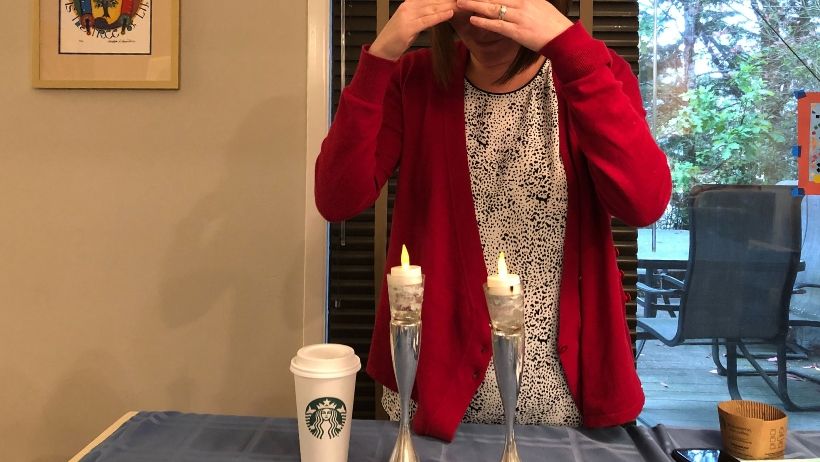If I close my eyes, I can still bring myself back to the parking lot of the local Caribou Coffee on a Friday night. It was filled with Jewish teens from all different youth groups meeting up to end their week together and make weekend plans. This wasn’t a formal program, just the universal gathering place. We’d all meet there around 8 p.m. to hang out (and sometimes flirt), make plans and enjoy the scene as it were. I remember begging my parents to let me go out on a particular Friday night, and the only place they’d relent to was this parking lot because it was in fact a Jewish experience.

I know what you’re thinking. How is hanging out in the parking lot of a coffee shop on Shabbat a Jewish experience? First, rest assured spending money was not an issue. I was there so often the servers knew me and let me prepay for drinks (interpret loopholes how you will). Second, I was surrounded by an entire community of young Jews gathering to celebrate the end of a week, relax together, and build relationships. That, to me, is the definition of a Shabbat experience. It was our natural ritual to gather, and it mirrors the ritual the Torah presents us with this week.
As we read Parshat Emor, we once again find ourselves deep into the commandments surrounding Jewish practice. Parshat Emor focuses on the rules and regulations for the priests, along with the obligations of the Israelites. It covers the observance of certain holidays, including mentions about the holiness of Shabbat, other holidays we are to celebrate throughout the year, and the ways in which we are to treat one another and even animals. The majority of these rituals are meant to be done in public, with the entire community a part of them.
Chapter 23 begins the discussion of a calendar of sacred time. We receive the laws for Shabbat, and then Passover, Shavuot, Sukkot, Yom Kippur and Rosh Hashanah. It’s at these times of the year when everyone would gather together in the same place to check in spiritually. With each set of laws we are reminded that we are to take the pilgrimage to the central shrine and connect in community with God and with one another.
Our modern-day synagogues have replaced the ancient Temple in Jerusalem as gathering places. And in a way, I would argue the Caribou Coffee of my youth played a similar role. These moments of connection served to bring people back together after a hectic week (or month or year), and the Torah suggests that in doing so, we create a deeper, richer, more balanced Jewish life for ourselves.



